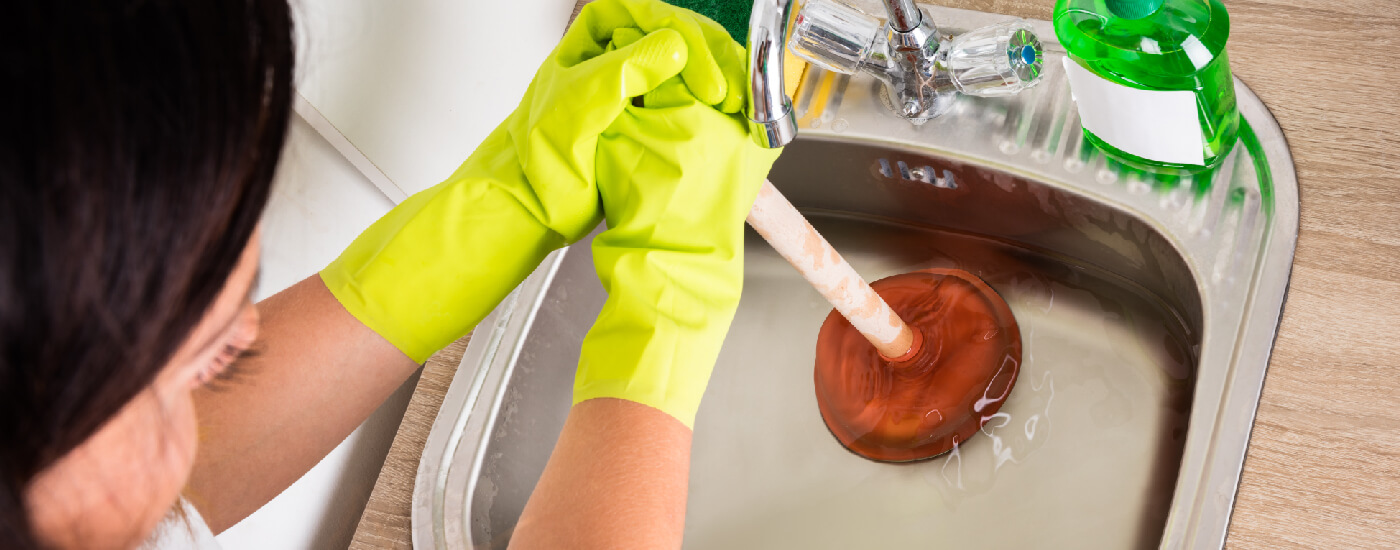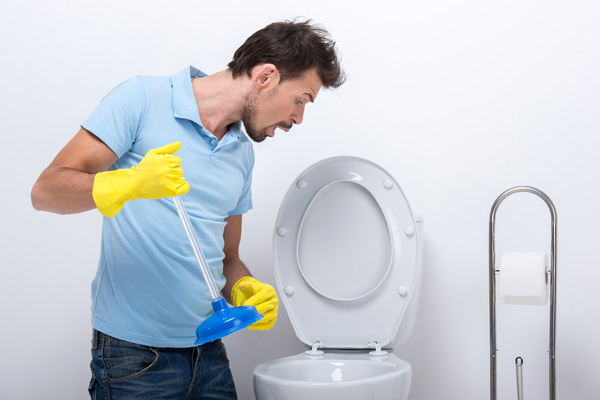Utilizing Plunger and Drain Cleaners: Effective Strategies
Book A Service CallDo you find yourself on the lookout for insight concerning Here's How to Correctly Use a Toilet Plunger?

Introduction
Appropriate maintenance of household drains is essential for preventing clogs and making sure smooth water circulation. One of the key devices in every home owner's toolkit is the bettor, together with various drainpipe cleansers developed to tackle stubborn blockages properly. This write-up checks out how to make use of bettors and drain cleaners properly to keep your drains moving easily.
Area 1: Comprehending Bettors
Kinds of Plungers
There are several sorts of bettors offered, each designed for different sorts of drains and blocks. One of the most common types consist of mug plungers, flange plungers, and accordion bettors.
Just How Plungers Work
Plungers service the concept of developing pressure and suction to dislodge blockages. When effectively used over a drainpipe, they create a vacuum that can pull out debris or break up obstructions.
Selecting the Right Plunger
Choosing the ideal bettor depends upon the kind of drain and the nature of the blockage. Cup plungers are perfect for sinks and tubs, while flange plungers are better matched for commodes because of their style.
Typical Mistakes with Bettors
Staying clear of these errors guarantees effective plunging: inappropriate seal around the drainpipe, inadequate force, and unclear surrounding debris.
Area 2: Using Plungers Effectively
Prep work
Before diving, guarantee the bettor covers the drain entirely and creates a tight seal. Clear any visible debris around the drainpipe opening.
Strategy
Beginning with gentle diving motions to develop suction. Rise pressure slowly, making use of a steady rhythm. Repeat as needed till the drainpipe clears.
Fixing Tips
If diving does not function, attempt readjusting the seal, applying petroleum jelly for a better seal, or using a different kind of plunger.
Section 3: Comprehending Drain Cleansers
Sorts Of Drainpipe Cleaning Company
Drain pipes cleansers can be chemical or enzymatic. Chemical cleansers make use of solid chemicals to liquify obstructions, while chemical cleaners utilize natural enzymes to break down organic matter.
Exactly How Drain Cleaners Work
Chemical cleansers respond with blockages to liquify them, while enzymatic cleaners break down organic products like hair and grease without harming pipelines.
Security Considerations
Constantly use gloves and eye defense when making use of chemical drain cleaners. Ensure ample air flow and follow supplier directions thoroughly.
Eco-Friendly Alternatives
Take into consideration utilizing vinegar and cooking soda or enzyme-based cleansers for eco-friendly options that are more secure for pipes and the setting.
Area 4: Utilizing Drain Cleansers Efficiently
Application Methods
Pour chemical cleaners straight into the drain opening. Allow them to work for the advised time prior to purging with warm water. Chemical cleansers must sit overnight.
Preventative measures
Stay clear of blending various sorts of cleansers, as this can create hazardous fumes. Never make use of chemical cleansers together with a plunger, as splashing can take place.
Taking Care Of Persistent Clogs
For persistent obstructions, take into consideration using a pipes snake or calling a professional plumbing professional to avoid damages to pipes.
Conclusion
To conclude, understanding just how to use bettors and drainpipe cleaners effectively is essential for keeping healthy pipes systems. By selecting the right tools and strategies, property owners can take on minor clogs and stop major pipes issues down the line.
How To Properly Use A Plumbing Snake To Clear Drains
When any drain clogs in our home arise, we tend to gravitate toward the plunger and little else. In cases where the plunger and its vacuum-created pressure are not able to clear clogs, many immediately move to harmful chemicals or simply call their plumber to fix the issue.
we’re happy to help with all drain cleaning needs and concerns. This includes informing you on a few other home remedies you may have at your disposal for minor to moderate clogs, one of which is the use of a plumbing snake. Many people have never used one of these before – let’s go over the steps to take when your drain clogs and you have a plumbing snake available.
Attempt Plunger Use
The first step here, as we noted above, should indeed be to grab your plunger when you notice a drain clog and attempt to resolve it this way. If you’re unsure how to use a particular type of plunger, our plumbers can answer any questions you have. If this doesn’t do the trick, however, you move on to the snake.
Locate And Prepare Snake
A plumbing snake is a metal or plastic device that’s generally about a quarter of an inch thick. It’s design with significant extensions, meant to reach down into your clogged drain and push the clog out. Snakes also contain drain augers that will latch onto and push stubborn blockages.
If your plunger doesn’t clear a clog, locate your snake and bring it to the drain in question. We also recommend keeping a bucket nearby to collect the clog once you pull it out, plus we’d advise wearing goggles and possibly protective gloves.
Feed Snake
Once you’re ready to go, feed the snake slowly down the drain, using the crank device it comes with to keep it moving until it finds the clog. Once this happens, much of the clog will be latched onto the coil so you can pull it out, while the rest will simply break up and flow downward.
Detach Debris
Remove the snake slowly from the drain, and once you’ve done so, pick off any debris that’s stuck to the coil. This is another area where wearing gloves is a must.
Flush Drain
Finally, take a few minutes to ensure the snake has done its job correctly. If you’ve been using it on a toilet, flush the toilet a couple times and make sure everything flows well. If you’ve used it on a different drain, flush it with some room temperature water.
https://www.mybuddytheplumber.com/blog/how-to-properly-use-a-plumbing-snake-to-clear-drains/

Application Methods
Pour chemical cleaners straight into the drain opening. Allow them to work for the advised time prior to purging with warm water. Chemical cleansers must sit overnight.
Preventative measures
Stay clear of blending various sorts of cleansers, as this can create hazardous fumes. Never make use of chemical cleansers together with a plunger, as splashing can take place.
Taking Care Of Persistent Clogs
For persistent obstructions, take into consideration using a pipes snake or calling a professional plumbing professional to avoid damages to pipes.
Conclusion
To conclude, understanding just how to use bettors and drainpipe cleaners effectively is essential for keeping healthy pipes systems. By selecting the right tools and strategies, property owners can take on minor clogs and stop major pipes issues down the line.
How To Properly Use A Plumbing Snake To Clear Drains
When any drain clogs in our home arise, we tend to gravitate toward the plunger and little else. In cases where the plunger and its vacuum-created pressure are not able to clear clogs, many immediately move to harmful chemicals or simply call their plumber to fix the issue.
we’re happy to help with all drain cleaning needs and concerns. This includes informing you on a few other home remedies you may have at your disposal for minor to moderate clogs, one of which is the use of a plumbing snake. Many people have never used one of these before – let’s go over the steps to take when your drain clogs and you have a plumbing snake available.
Attempt Plunger Use
The first step here, as we noted above, should indeed be to grab your plunger when you notice a drain clog and attempt to resolve it this way. If you’re unsure how to use a particular type of plunger, our plumbers can answer any questions you have. If this doesn’t do the trick, however, you move on to the snake.
Locate And Prepare Snake
A plumbing snake is a metal or plastic device that’s generally about a quarter of an inch thick. It’s design with significant extensions, meant to reach down into your clogged drain and push the clog out. Snakes also contain drain augers that will latch onto and push stubborn blockages.
If your plunger doesn’t clear a clog, locate your snake and bring it to the drain in question. We also recommend keeping a bucket nearby to collect the clog once you pull it out, plus we’d advise wearing goggles and possibly protective gloves.
Feed Snake
Once you’re ready to go, feed the snake slowly down the drain, using the crank device it comes with to keep it moving until it finds the clog. Once this happens, much of the clog will be latched onto the coil so you can pull it out, while the rest will simply break up and flow downward.
Detach Debris
Remove the snake slowly from the drain, and once you’ve done so, pick off any debris that’s stuck to the coil. This is another area where wearing gloves is a must.
Flush Drain
Finally, take a few minutes to ensure the snake has done its job correctly. If you’ve been using it on a toilet, flush the toilet a couple times and make sure everything flows well. If you’ve used it on a different drain, flush it with some room temperature water.
https://www.mybuddytheplumber.com/blog/how-to-properly-use-a-plumbing-snake-to-clear-drains/

I ran across that write up on while perusing the internet. Appreciated our write-up? Please share it. Let other people discover it. I cherish reading our article about How to Use a Plunger to Unclog a Toilet or Drain.
Book Service